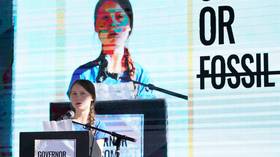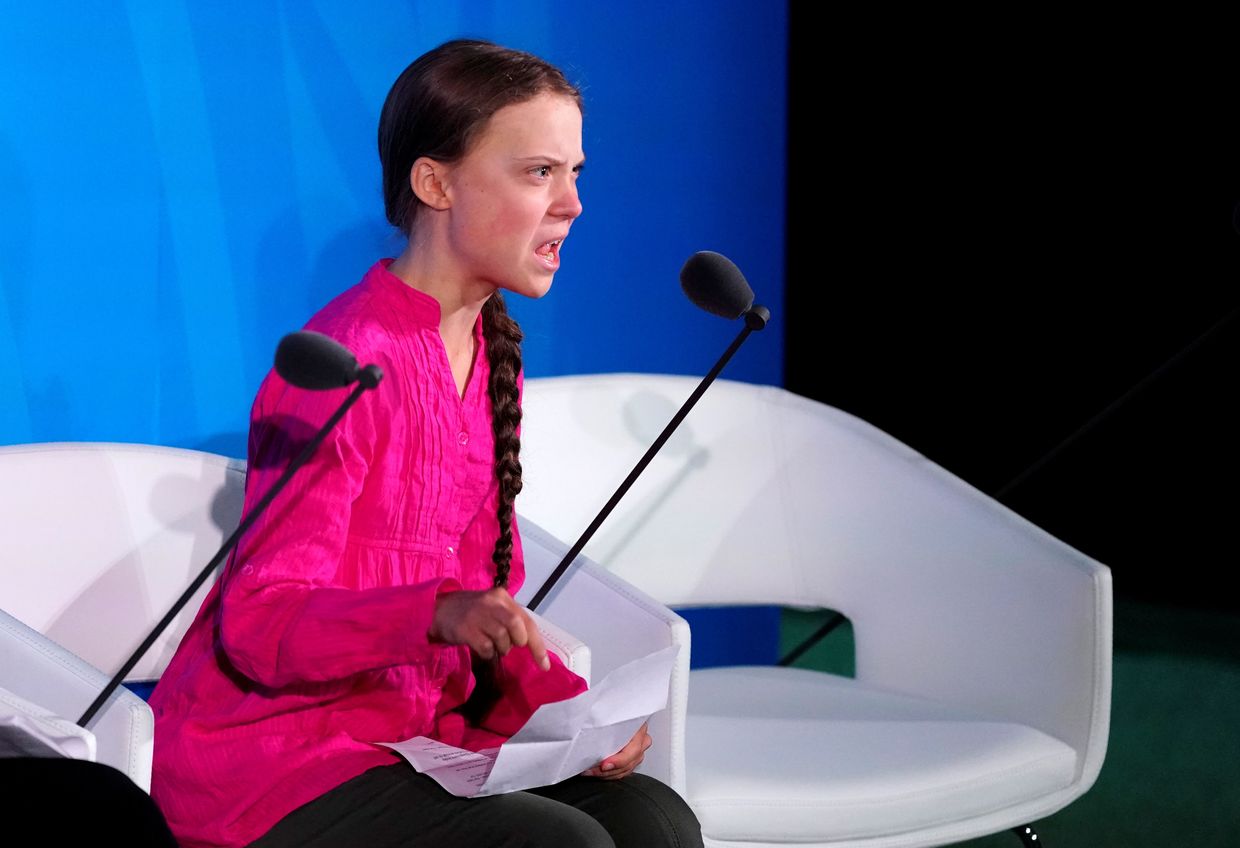Kyoto failed. Paris failed. Will the Greta-starring Madrid UN climate conference be any different?

The ill-fated COP25 has found a host location at the third time of asking but, just like its predecessors, the high-powered international summit looks to be big on gestures and small on reversing the direction of humankind.
Starting on Monday, COP25, or the 25th Conference of the Parties to the UN Framework Convention on Climate Change, to give the summit its full name, will bring together top officials from 197 countries with the aim of establishing a set of new national targets towards cutting emissions. The talks were originally due to be held in Brazil, but the government there pulled out 12 months ago. Chile offered to take over but, after weeks of street protests, the government there pulled out, too. Finally, the Spanish government stepped in four weeks ago to take over.
What are the talks about?
The talks will review the progress made since the much-ballyhooed Paris Agreement was signed at COP21 in December 2015. The Agreement aims to reduce emissions enough to keep global temperature rises 'well below' two degrees Celsius above pre-industrial levels, and ideally 1.5 degrees. The world has already warmed by about one degree Celsius from that baseline, leaving nations with even less leeway.
Each country has promised to set a national goal for lowering emissions along with a plan for how that might be achieved.
Does setting targets work?
There were two main problems with the Paris Agreement. First, there is no international mechanism to enforce the targets that countries declare. Beyond domestic laws and 'peer pressure' from other countries, there is no penalty for failure. Second, the cuts pledged so far are nowhere near sufficient, if climate models are correct, to stop the world warming by well over two degrees. Hence the demand for new, even more ambitious targets to be set, both in Madrid and at the 2020 meeting in Glasgow, UK.
Also on rt.com Doom-mongering scientists now warn that climate change will kill thousands. Cutting out fossil fuels will kill MILLIONSCountries do seem to be stepping up their ambitions – or, at least, their rhetoric. For example, more and more countries are pledging to reach 'net zero' emissions by 2050 or shortly after. In the past few days, the new president of the EU Commission, Ursula von der Leyen, has demanded that EU member states commit to cutting emissions by 55 percent by 2030.
Do we believe politicians this time?
The record on achieving emissions cuts in this way is very poor. For all the grand declarations at UN events, the reality is that even the weak targets set so far have only been met by accident rather than by design.
For example, the Kyoto Protocol, signed in 1997, committed industrialized countries to cut overall emissions by five percent, compared to 1990, by 2012. The targets were just about met – but mainly because of the deindustrialization of Eastern Europe and Russia after 1990, along with unrelated events in Western countries, namely the economic crisis of 2008-09.
So, what will actually happen?
The scale of the problem is highlighted by the UN Environment Programme's Emissions Gap Report 2019, published on 26 November. The report analyses the 'emissions gap' between what is currently happening, what countries have pledged to do and the emissions reductions that are needed. In short, far from emissions falling rapidly or even stabilizing, they have carried on rising at about 1.5 percent per year.
That also means that the cuts that are needed to reach the goals in the Paris Agreement must be made even faster.
Should we even bother with emissions targets?
At which point, it is surely worth asking: is the problem a lack of political will, as many critics maintain, or is the whole process of setting targets simply wrong? When faced with the problem of maintaining or improving living standards for their own citizens, governments' first thought will always be to protect their own position rather than make cutbacks.
And Emmanuel Macron’s desire to go against his people with a fuel tax a year ago – which provoked a year of Yellow Vest protests – shows the political costs of the elite trying to impose its green policies on a reluctant electorate.
Also on rt.com ‘Satire is about democratic debate’: German TV channel shields comic who ‘likened’ Greta Thunberg to Hitler & StalinIn truth, the West has barely recovered from the crash of 2008. Politicians are highly unlikely to jeopardize what little growth is happening by imposing more taxes and restrictions on pollution.
Even when the politicians do manage to squeeze policies through, they are highly cost-inefficient. Germany has spent over €300 billion ($330.5 bn) on introducing renewables like wind power and solar power, yet they make up just one-seventh of Germany's energy needs and German consumers now pay the highest electricity prices in Europe.
Is there a better way?
There is, if we stop predicting doom and put our faith into human ingenuity instead. For one thing, there is no 'climate emergency.' We should ignore the advice of Greta Thunberg to 'panic.' These claims are an attempt to silence dissent and debate, to force us to do what the eco-warriors want rather than take a balanced view.

1. Don't panic!
The world is likely to get warmer, whatever we do. But thanks to economic development - mostly powered by fossil fuels - we are in a better position to deal with whatever nature throws at us. Just one example: deaths from natural disasters have plummeted in the past century thanks to better transport, communications, healthcare and food supplies. We need more economic growth so we may drag billions more out of poverty and be even more resilient in the future.
2. Apply the best technologies – and develop even better ones
Let's pick the 'low-hanging fruit' – the easiest and cheapest ways to cut emissions. For example, low-energy lighting both cuts energy use and saves money very quickly. Switching from coal to gas for electricity generation has been successful in the UK and US. Alongside that, let's invest in things that are good ideas in themselves, but also happen to cut emissions, so-called 'no regrets' policies. Electric and hydrogen-powered vehicles not only don't produce greenhouse gas emissions, but can drastically improve the air in our cities - and they need less maintenance, too. Let's strive to make them cheaper and more reliable.
Also on rt.com Motorist in Austria has tried FOR MONTHS to scrap his Tesla after it was reduced to ash IN SECONDS after crashing (VIDEO)3. Stop wasting money on renewables
Wind and solar can be useful if the conditions are right - where there's lots of sunshine or plenty of wind. Otherwise, they don't cut emissions by much and they are not reliable, but they do increase the cost of energy. We need reliable, affordable forms of low-carbon energy, whether it is existing technology like nuclear fission or new possibilities like nuclear fusion. Let's use some of the money we save on renewables to launch a new wave of energy research.
Some of these things will take time to come to fruition. But we must take the long term view – which is exactly what the green activists always demand. So instead of quick headline-grabbing but meaningless fixes to stave off the apocalypse, we must trust ourselves to work our way out. Not that you will hear much of that optimistic rhetoric in Madrid.
Think your friends would be interested? Share this story!
The statements, views and opinions expressed in this column are solely those of the author and do not necessarily represent those of RT.













